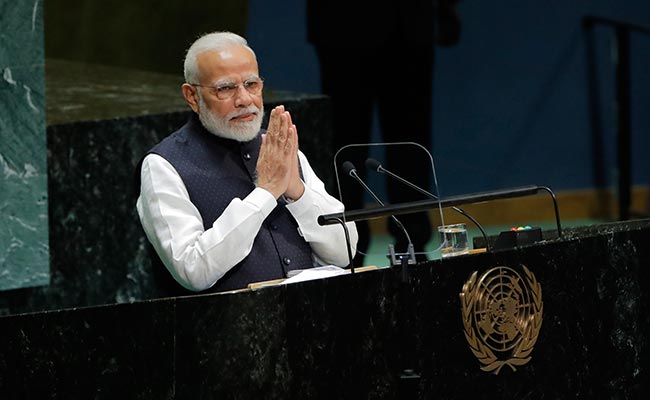
This blog provides the discussion highlights for the Sunday IR Cafe #11. Conducted on 10th April 2022, the discussion covered two papers: Saffronizing Diplomacy: the Indian Foreign Service under Hindu Nationalist Rule and Populism and Foreign Policy: The Case of India.
CORE ARGUMENTS:
Kira Huju. Saffronizing Diplomacy: the Indian Foreign Service under Hindu nationalist Rule.
- Kira Huju’s paper argues that the Indian diplomatic service is undergoing the process of saffronization. While agreeing with scholars like Kate Sullivan de Estrada, Manjari Chatterjee Miller, Ian Hall, and Rajesh Basrur, who have claimed that Indian foreign policy has not undergone any substantial transformation, the author argues that the practice of Indian foreign policy is changing at the level of diplomacy. This is occurring through the internalization of new diplomatic norms and practices that are in tune with the larger institutional agenda of a majoritarian government.
- The structure that earlier used to be the base of the Indian Foreign Service and the content of its diplomacy is poles apart from the core characteristics of the Hindutva project. The earlier Nehruvian structure was cosmopolitan, secular, and internationalist. Hindutva, in contrast, stands on a narrow ideological ground of religious pride, exclusivism, and historical exceptionalism.
- A shift is now taking place in the process of the IFS recruitment, training, and at the level of protocols. Indian diplomats in the past resisted being aligned with any overt sign of religiosity and sought to present India as a diverse, secular land upholding multicultural inclusivity. Hindutva revises India’s diplomatic identity away from the Nehruvian postcolonial Indianness premised on transnational solidarity across the global South towards the saffronization of the Indian self, insistent on uniform civilizational and religious identity. The deviation is visible in the case of explicit religious tours of Kumbha Mela for the probationary IFS officers and the gifting of Hindu religious texts like the Gita to foreign dignitaries. While it can be seen as a projection of cultural soft power, Huju argues such soft power tropes allow Hindutva to normalize its dominant ideology and gain acceptance abroad.
- She further argues the saffronisation of Indian diplomacy is not just an ideological phenomenon but also a sociological one, entailing a shift in elite composition. Since the economic liberalization and ‘Mandal’ reservations, the sociological composition of the Indian diplomatic elite has diversified from its earlier elite moorings. The anglicized Indians, dominant erstwhile in the IFS, are now being gradually replaced by a cohort of diplomats driven from diverse caste and class. From an egalitarian perspective, this transformation is occurring in a polity that claimed to be democratic but retained a ‘pretty feudal’ structure in its bureaucracy. Even though religiously exclusive, the diversification of the cadre means that the IFS is becoming more reflective of India at large and, thus, is more likely to reflect the popular support for the Hindutva rhetoric. So, it is not a project aimed only against the secular internationalist outlook but also that elite base which upheld it.
Johannes Plagemann and Sandra Destradi. Populism and Foreign Policy: The Case of India.
- What distinct approach do populist leaders have towards foreign policy? What are the indicators to check the shift in a populism-driven foreign policy? Plagemann and Destradi take the case of India under Modi to test distinct features of the populist foreign policy, driven by two inherent elements of anti-elitism and anti-pluralism. The authors accept this ideational definition of populism which allows them to treat populism as a thin ideology and consequently test its implications on foreign policy conduct across a range of cases.
- The shift in foreign policy occurs with the underlying logic that the leaders follow the mandate given to them in the name of the people. The varieties of their promises drive foreign policy too, as a reflection of ‘popular will.’
- Before evaluating the influence of populism on Indian foreign policy due to the PM Modi, Plagemann and Destradi build five hypotheses on the contours of populist foreign policy. The first hypothesis contends that populist foreign policy will be driven by a narrow conception of national interest and an aversion to global governance, which entails making concessions. In the Indian context, however, this hypothesis stands invalidated as the Modi regime has not witnessed any perceptible decline in India’s engagement with the global governance regime.
- The second hypothesis goes that populist leaders prioritise bilateral arrangements over multilateral ones, given the supposed elitist nature of multilateral institutions. In the Indian case, however, the hypothesis does not get vindicated as Indian foreign policy under Modi has witnessed the vigorous multilateral engagement.
- The third hypothesis emerges from the anti-elitist framework, entailing a direct connection between a populist leader and her constituencies. The contours of this constituency, argue the author duo, might include the diaspora population. As such, populist foreign policy is likely to be sensitive to diaspora concerns. In the Indian context, this hypothesis stands vindicated due to the Modi government’s vigorous engagement with the NRIs.
- The populist leaders are likely to be sceptical of existing institutions and administrative elites. The fourth hypothesis relies on this scepticism to argue that populist leaders would consolidate a centralized decision-making apparatus. In the Indian context, the centralizing tendency of the populist leader is visible in the growing clout of the Prime Minister’s Office and the concomitant sidelining of the Ministry of External Affairs.
- The fifth hypothesis focuses on the populist affinity for ‘the people’ to argue that populist leaders shall sideline mainstream media to communicate directly with the masses, including by way of social media platforms.
DISCUSSION:
Saffronizing Diplomacy: the Indian Foreign Service under Hindu Nationalist Rule.
- A substantial amount of scholarly work on Indian foreign policy in the Modi era has persuasively argued for continuity in foreign policy conduct, despite a huge transformation in the domestic political order. In this context, two recent papers by Huju and Plagemann & Destradi attempt to investigate the impact of ideology- Hindu nationalism and populism- on the apparatus of Indian foreign policy. These two papers are highly relevant in contemporary times and fill a crucial literature gap on ideology as a unit-level variable impacting foreign policy in the Indian context.
- Academic scholarship from outside India on ideologically-charged themes needs special engagement from Indian IR scholars. A critical engagement of this type can evaluate whether any preconceived notions or presuppositions inform such work and whether the ideological characterization in such work is in congruence with the wider Indian reality. Adding this critical layer to the academic scholarship around India should be cultivated as a dialogue which can possibly add to the depth and rigour of such scholarship.
- The idea of internationalism presented in the article, which is related to the claim that Hindutva is insular, is thin. The article does not empirically show any substantial reduction in India’s international engagement brought by Hindutva forces. The argument that the Modi-led BJP government is less internationalist in its orientation was criticised on the basis of India’s increased engagement with the world at large. Modi’s diplomatic visits around the world and India’s stance in multilateral forums on issues like climate change and humanitarian disasters show that India’s internationalist engagement has not slackened. Moreover, India’s increasing emphasis on identity and cultural power is compatible with India’s imagination of multipolar world order.
- The idea of Hindutva in India has a contested history and has meant different things to different people at different times. Rather than being a clearly articulated ideology, it is more akin to a bunch of interrelated concepts loosely tied together into a fuzzy political whole. Any attempt to measure the effect of this idea on the policy will need a substantive engagement with how Hindutva as an idea and practice has been evolving over time in response to shifting socio-political realities, both local and global. The approach taken in the article, in which historical personalities linked to Hindutva are invoked, and it is presented as a theory, does not do justice to Hindutva as a dynamic concept.
- The article presents a compelling idea for the existence of deep sociological drivers bringing about a change in diplomatic practice that can’t be simply attributed to Hindutva. In this perspective, Hindutva is not the chief agent of the change observed but a historical condition which participates in and enables such change. Extending this perspective offered by the paper, the change in Indian diplomatic grammar, especially the emphasis on nationalism and self-interest, can be attributed to international drivers in which Hindutva has played only an enabling part. The structure of international politics today is characterized by the breakdown of the unipolar order, with middle-power states like India seeking to maximize gains by emphasizing their national interest first and carving out their own spheres of influence. In such a scenario, the growing assertiveness of Indian diplomacy might not necessarily be a break from the past but may simply reflect an evolution brought about by international drivers, answering the need to engage with a transformative world in a new way.
Populism and Foreign Policy: The Case of India.
- In recognition of the unique tenor of the paper, it drew praise from the discussants for the innovative conceptualisation in terms of understanding the contours of populist foreign policy, a subject both sorely understudied and highly relevant in our times. The relevance of the article to the current Indian context was also recognized and appreciated, given the continued electoral domination of the current government with its attendant implications for foreign policy-making.
- The decision of the authors to go with the ideational definition of populism- constituting anti-elitism and anti-pluralism- makes sense because it captures the essence of the phenomenon in a broader sense. The characterization of populism as a thin ideology allows us to understand situations where populism of both leftist and right-wing varieties is at play.
- With regard to the section on deriving hypotheses pertaining to populist foreign policy, the third hypothesis- the populists in power would engage with the transnational diaspora audience in their foreign policy- was questioned in the discussion. Given that populism consists of anti-elitism in its rhetoric, it can plausibly be argued that the well-off, elite section of the diaspora might invite scorn from the have-not masses, on grounds of supposed opportunism of the diaspora elites and the resentment that it breeds. In that sense, the contours of populist foreign policy don’t preclude a sense of resentment at and possibly even the demonization of the well-off diasporic population.
- In testing the hypothesis on the populist leader’s tendency to adopt social media as a tool to convey foreign policy to ‘the people’, the authors point to PM Modi’s disdain for traditional media and the savvy use of digital technology. However, it can be pointed out that in another context, in contrast to Modi, populist President Donald Trump engaged with traditional media, albeit reluctantly and combatively. Moreover, in the Indian context, manifestly non-populist technocrat (former foreign secretary Nirupama Rao) and politician (Shashi Tharoor) were early adopters of social media technology. These two examples complicate the straightforward proposition on the link between social media and populist leadership.
- The author duo’s conclusion about the lack of major changes in the substance/conduct of Indian foreign policy under the Modi regime also elicited an interesting response. While Destradi and Plagemann show the immodest impact of populism as a thin ideology on the conduct of Indian foreign policy, Ian Hall has argued that the thick ideology of Hindu nationalism, likewise, did not significantly drive India’s foreign policy. In finding an explanation for this behaviour, based on Rajesh Rajagopalan’s argument, the role of structural factors as a constraining lever on the foreign policy was advanced as a plausible answer.
- Lastly, the paper drew praise for its clear conceptualisation which can serve as a guide for research scholars in conducting solid deductive theorisation and hypotheses testing.

